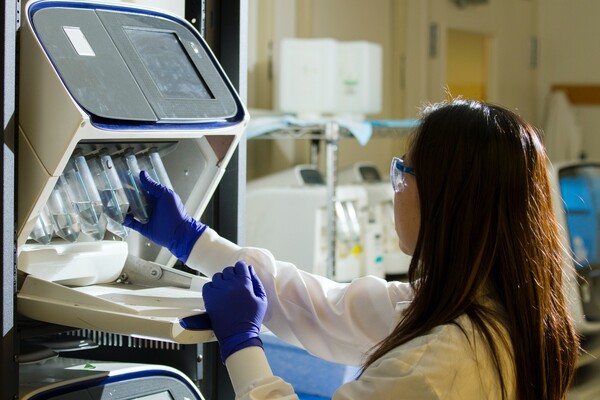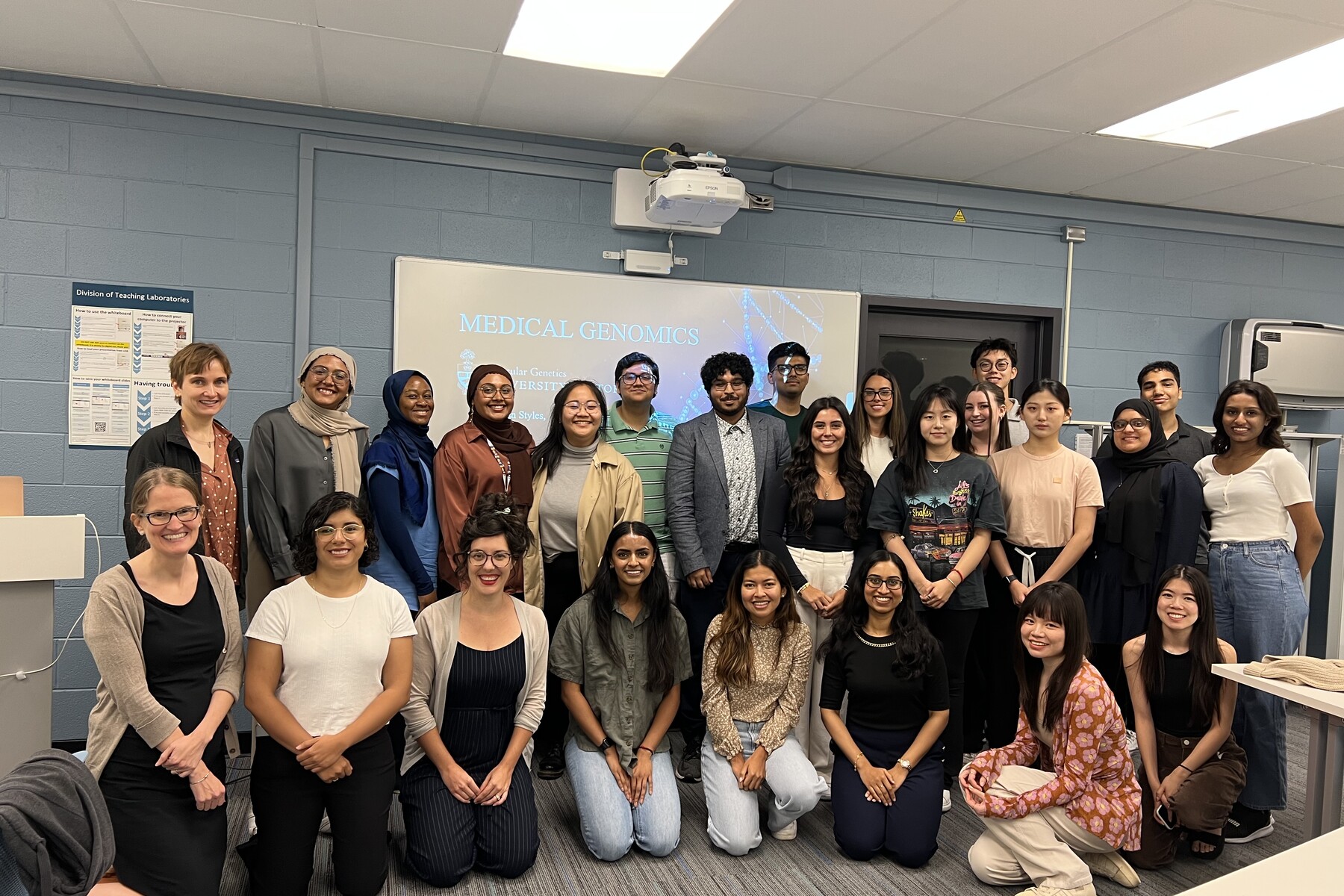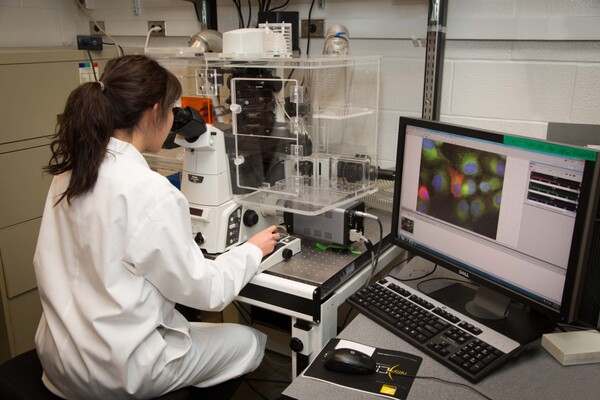
Main Second Level Navigation
Breadcrumbs
Medical Genomics
MHSc
Our Program
Genomics – the ability to read and interpret information contained within our DNA – is a rapidly growing field, with implications reaching from the bench all the way to the bedside.
The fast-paced nature of this field is creating a widening knowledge gap between cutting-edge genomics research and current clinical practices, and this has created an emerging need for laboratory professionals and clinicians to generate, integrate, and interpret genetic and genomic data. The Master of Health Science (MHSc) in Medical Genomics is meeting this need head on, training the next generation of genomics experts who are helping to drive a new era of healthcare and patient management, and a vibrant academic healthcare system.
This is a 9.0 FCE* fast‐paced, content‐dense degree program, housed within the Department of Molecular Genetics, consisting of a core set of lecture, discussion, and project-based courses across two years (five terms).
Enrolling students in either a laboratory professional stream or a clinical stream, the program provides medical trainees, clinicians, research scientists, and laboratory professionals with the theory and practical knowledge necessary to incorporate genomics data into research, medical practice and business.
In addition to lecture-based learning, students participate in a hands-on, stream-specific Capstone practicum during the final academic term of the program. During the practicum, students engage in dynamic placements with a huge breadth of available project topics, including clinical genomics research, clinical diagnostics, bioinformatics, public health policy, commercial development, and communications, and work with groups in hospitals, academic institutions, industry, and government agencies, among many others.
Courses

- MMG 3001Y (Advanced Human Genetics)
- MMG 3002Y (Biological Statistics)
- MMG 3003Y (Genomic Methodologies)
- MMG 3201H (Medical Genomics Graduate Professional Development)
- MMG 3202H (Next-Generation Sequencing - Data Generation Laboratory)
- MMG 3203H (Next-Generation Sequencing - Data Analysis and Interpretation)

Alumni Profile

Sierra Scodellaro, MHSc
As a graduate student, I gained experience in pharmacogenomics, both in and out of the classroom. I completed my Capstone practicum project at the Hospital for Sick Children, where I gained valuable experience working with a variety of medical and scientific experts, including pharmacists, clinicians, genetic counsellors and company stakeholders.
I am currently a Pharmacogenomics Data Analyst at SickKids Hospital, which is a role that links pharmacology and genomics. When I started the role, pharmacology and genome diagnostics were very isolated from each other; my work helps to bridge the gap between them.
I encourage you to reach out, make connections and pursue the ideas that fascinate you. Expand your horizons, see what different genomics fields are like, learn how the field is progressing and figure out how to enter it.
By the Numbers
Department of Molecular Genetics
*Full course equivalent. A typical 0.5 FCE is over one term (13 weeks), meeting 1-2 times per week. A typical 1.0 FCE is over two terms (26 weeks), meeting 1-2 times per week.
